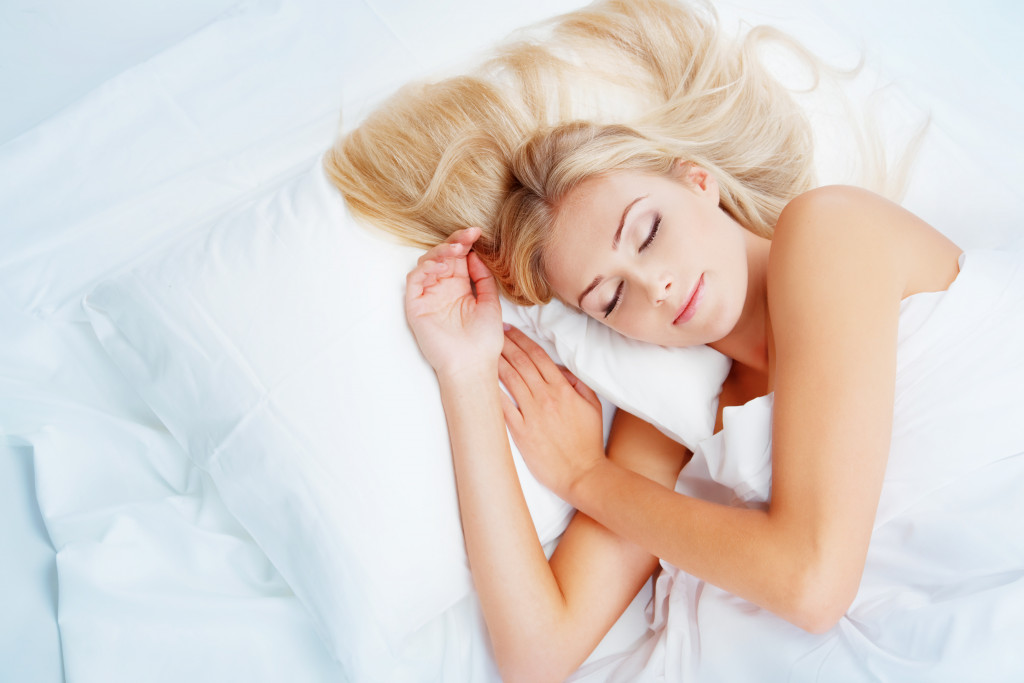The words “sleep” and “rest” are often used interchangeably, but they have different meanings. Sleep is a state of reduced consciousness, while rest is a period of inactivity or repose. So if you’re not getting enough sleep, it might be because you’re not resting enough during the day.
Sleep directly affects our energy, mood, productivity, and learning ability. It’s essential to get enough sleep to be at our best during the day. Otherwise, it may lead to health problems down the road like obesity, heart disease, and diabetes.
Unhealthy daytime habits can make it difficult to sleep at night. Here are a few things you can do during the day to help you sleep better. Furthermore, if you have issues with your sleep, you can contact an oral doctor. Sleep apnea can create a nuisance for you at times.

Establish a Regular Sleep Schedule
Go to bed and wake up at the same time each day. This will help your body get into a routine and make it easier to fall asleep at night. It is one of the most important things to improve your sleep today. Moreover, you will feel much more refreshed if you stick to a regular sleep schedule. Going to sleep at around the same time and sleeping for the same number of hours each night will help regulate your body’s natural sleep rhythm.
Do not alter your weekend sleep schedule. Although it may be tempting to sleep in on the weekends, try not to change your sleep schedule too much. Doing so can disrupt your body’s natural sleep rhythm and make it harder to fall asleep during the week. If you must change your sleep schedule, do so gradually by going to bed and waking up 15 minutes later than usual each day.
You should also avoid napping. Napping can make it harder to sleep at night because it can throw off your body’s natural sleep rhythm. If you do nap, keep it short and avoid taking naps too close to bedtime.
Control Light Exposure
Melatonin is a hormone that helps to regulate sleep. It’s produced in response to darkness and decreases when light is out. So exposure to bright light during the day can suppress melatonin production and make it harder to fall asleep at night.
To reduce light exposure, try to avoid using electronic devices before bed. The blue light emitted from these devices can suppress melatonin production and keep you awake. If you can’t avoid using electronic devices before bed, try to use programs like f.lux that reduce the amount of blue light emitted from your screen. Stop watching late-night TV shows. You can also use heavy curtains or an eye mask to block light exposure in your bedroom.
Another way to reduce light exposure is to wear sunglasses during the day. Sunglasses block out bright light and can help to increase melatonin production. Let as much sunlight as you want to enter the home. Sunlight exposure during the day helps to keep your internal clock in check. You can also use a light therapy box to expose yourself to bright light during the day. Light therapy can be beneficial for people who have trouble sleeping due to shift work or jet lag.
Exercise During the Day
If you exercise regularly, you’re likely to sleep better at night. Exercise helps to improve sleep by reducing stress and anxiety, increasing body temperature, and promoting muscle relaxation. It’s best to exercise during the day to increase body temperature doesn’t interfere with sleep. Just be sure to avoid exercising too close to bedtime as it can make it harder to fall asleep.
Exercise speeds up metabolism so that you process food better. After eating, wait at least two hours before going to bed. Always try to keep a gap of at least four hours between dinner and sleep. It will help you to get your cortisol levels normal. Moreover, you will be able to sleep better.
Eat and Drink With Caution
What you eat and drink during the day can impact your sleep at night. Caffeine is a stimulant that can keep you awake. So it’s best to avoid caffeine in the afternoon and evening. Alcohol may make you feel drowsy, but it can interfere with sleep. That’s because the alcohol prevents you from reaching the deep, restorative stages of sleep. So it’s best to avoid alcohol in the evening if you want a good night’s sleep.
Eat light and healthy meals during the day. Heavy, greasy meals can make you feel sluggish and sleepy. Try to eat small, light meals throughout the day instead. And be sure to avoid eating large meals too close to bedtime as it can make it harder to fall asleep.
These are a few ways to sleep better. You can incorporate these lifestyle changes and make them a tremendous recuperating habit for your body.

